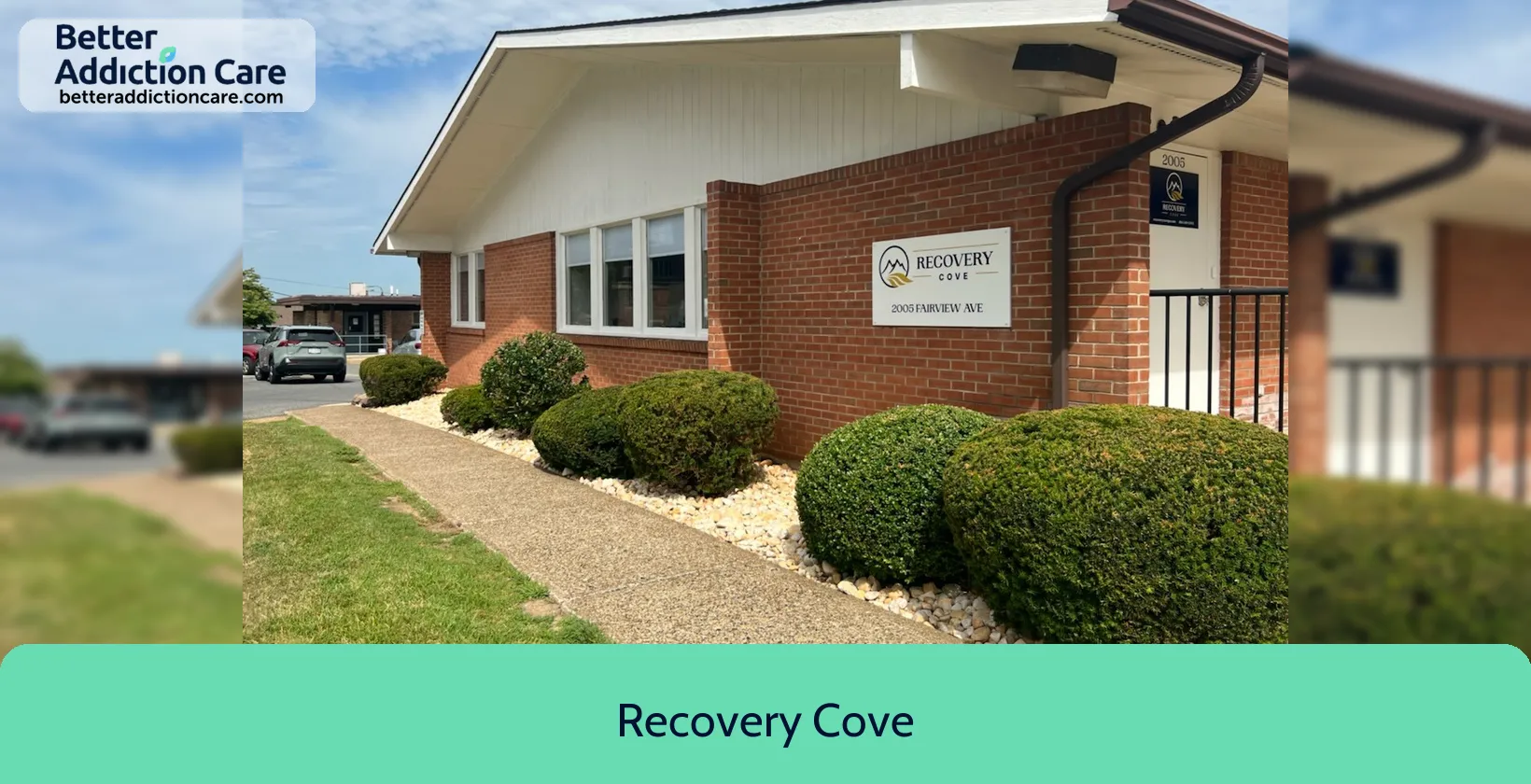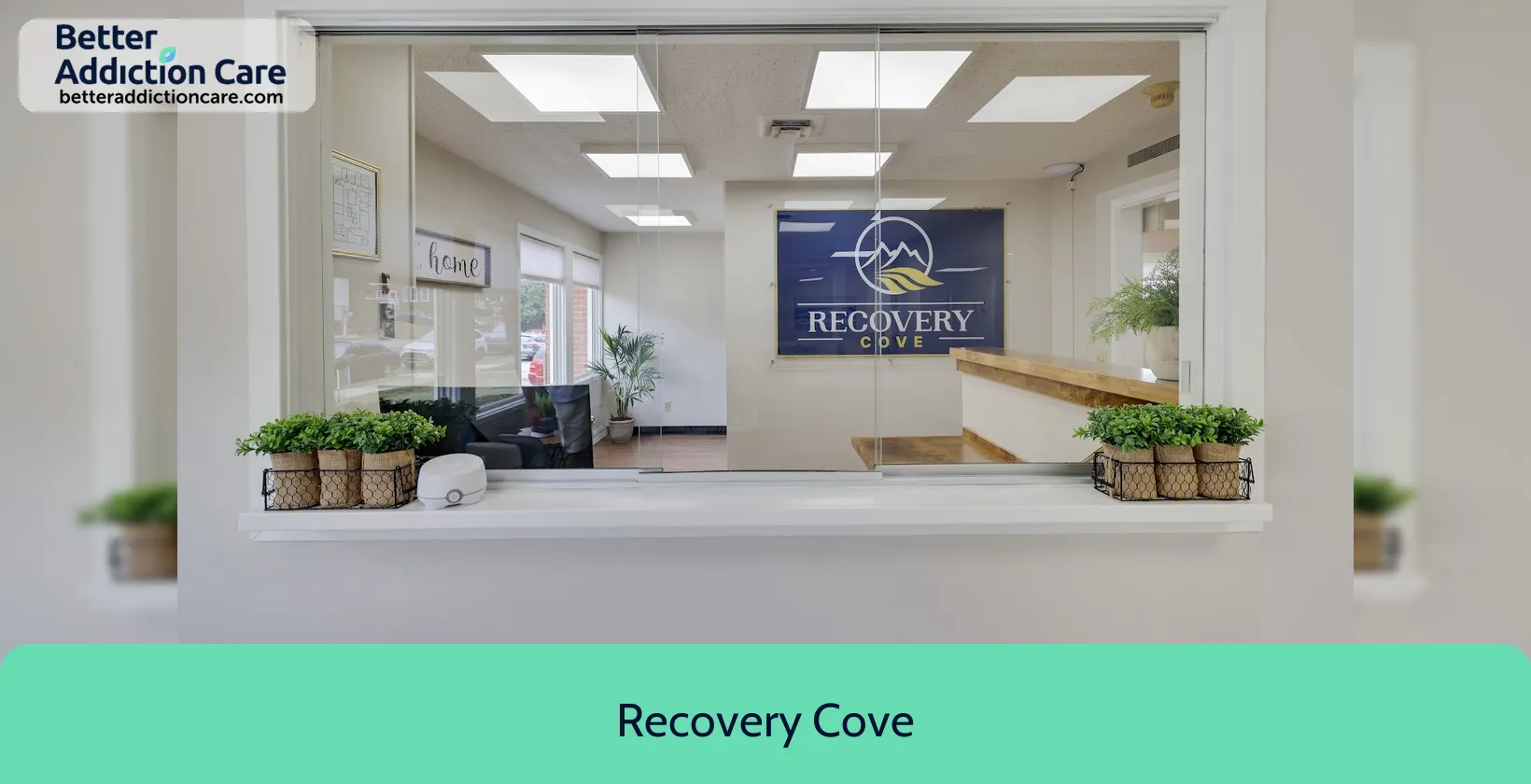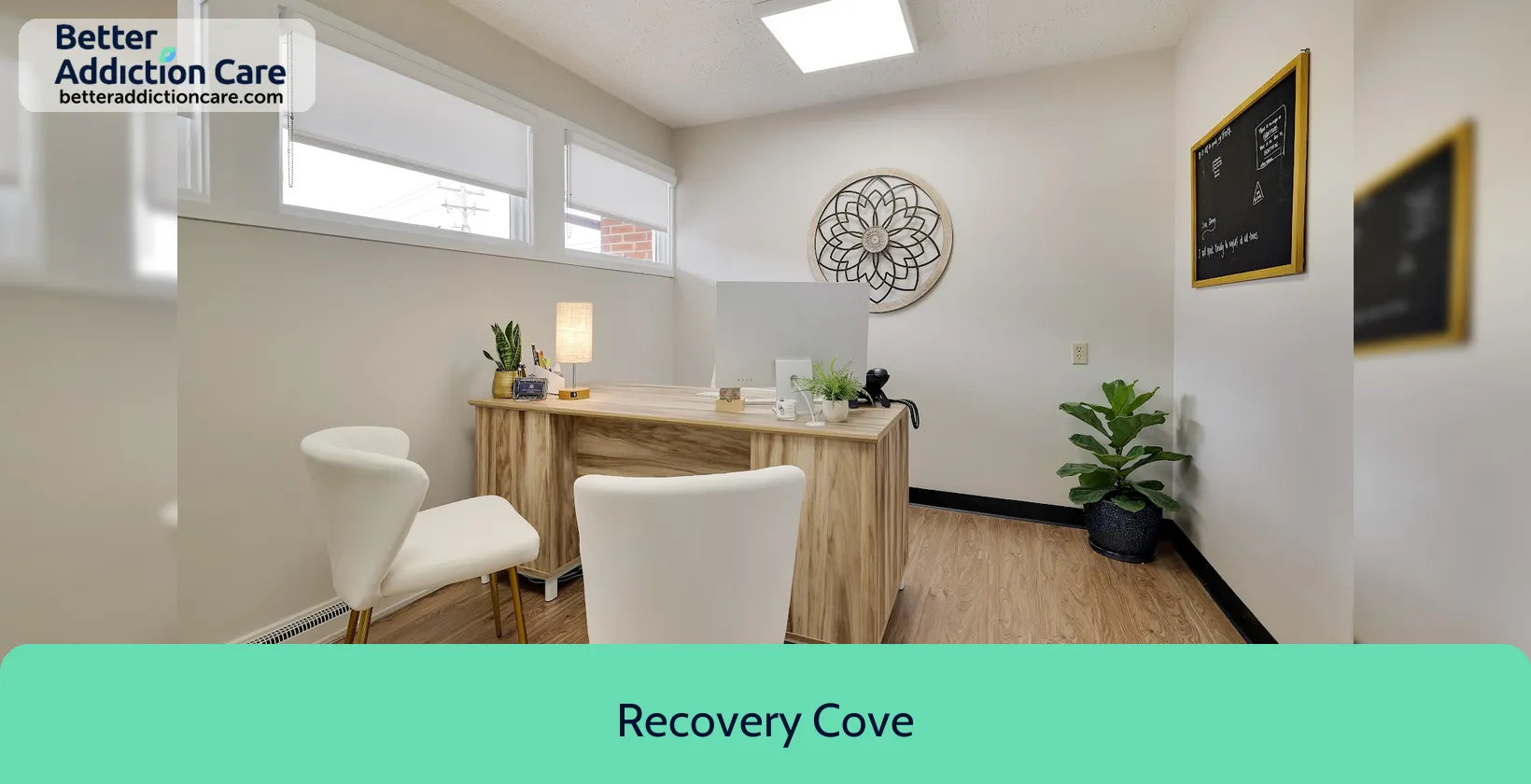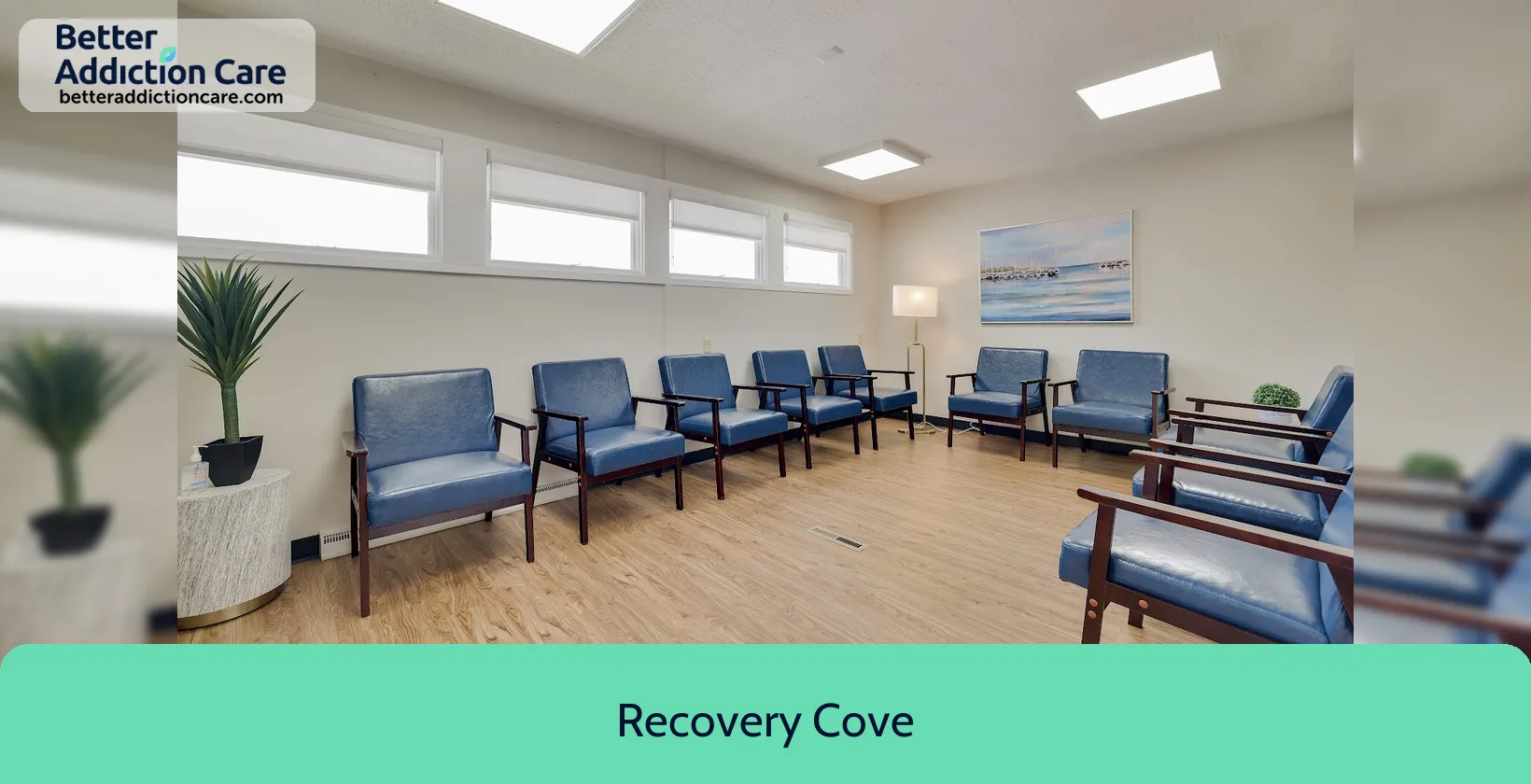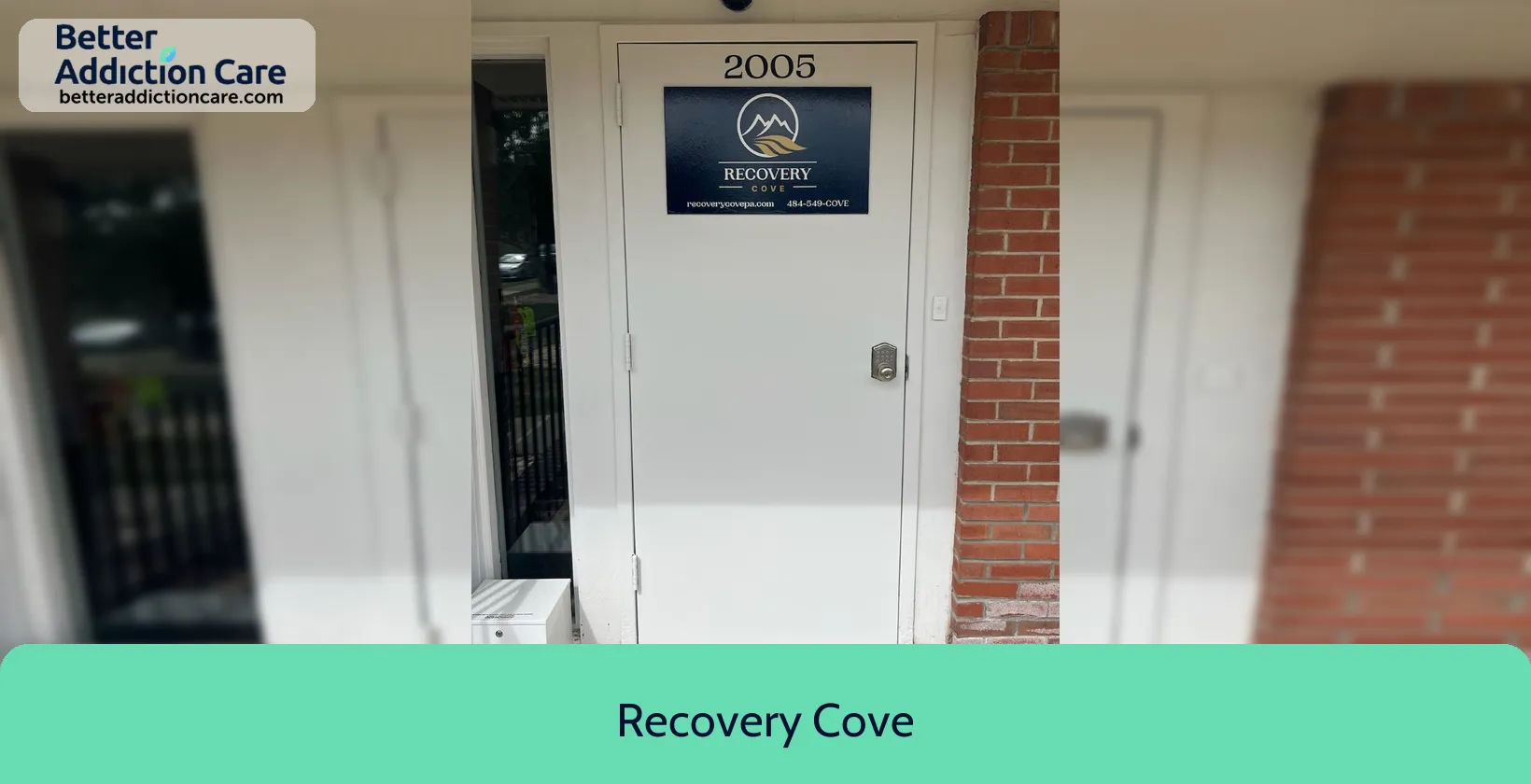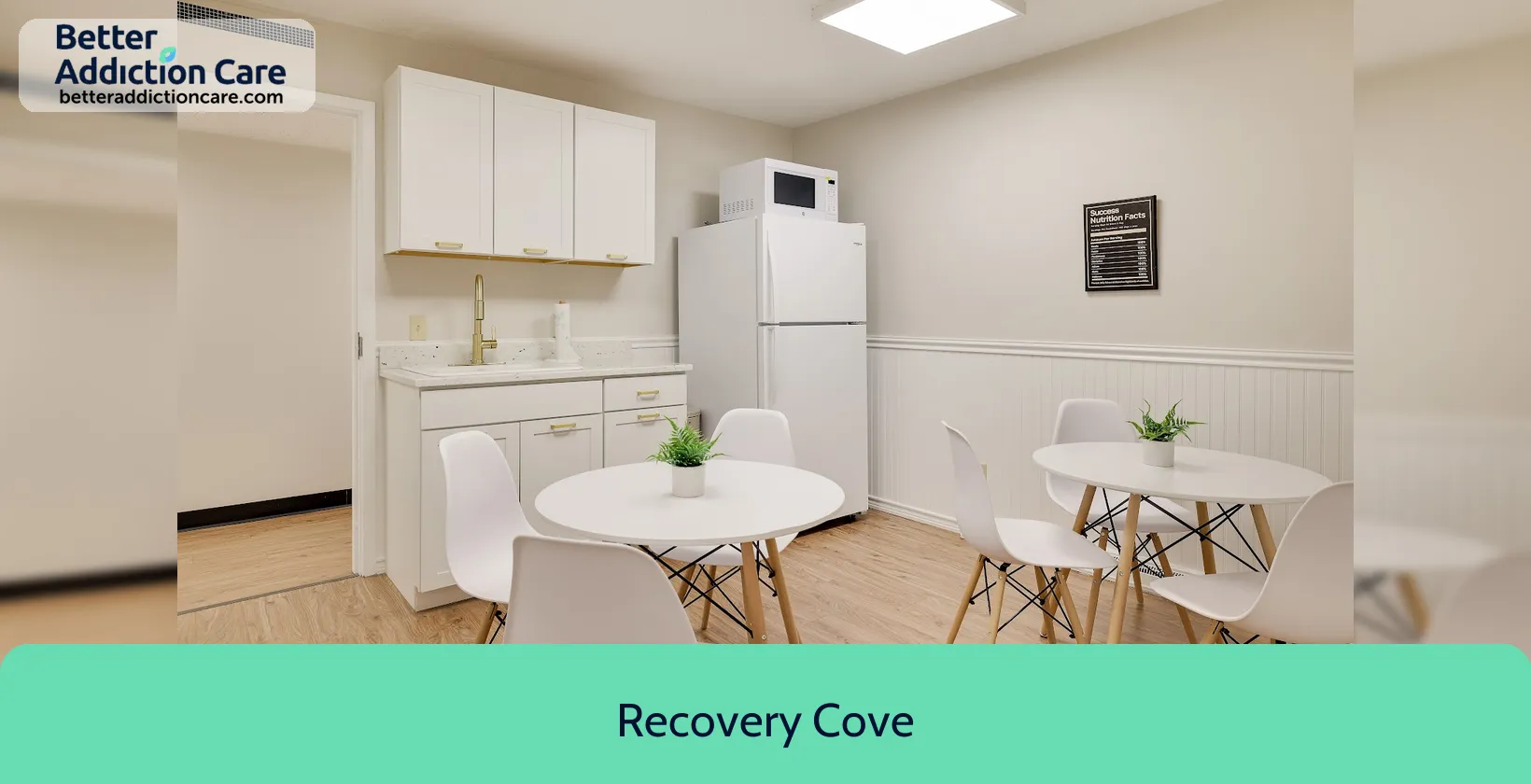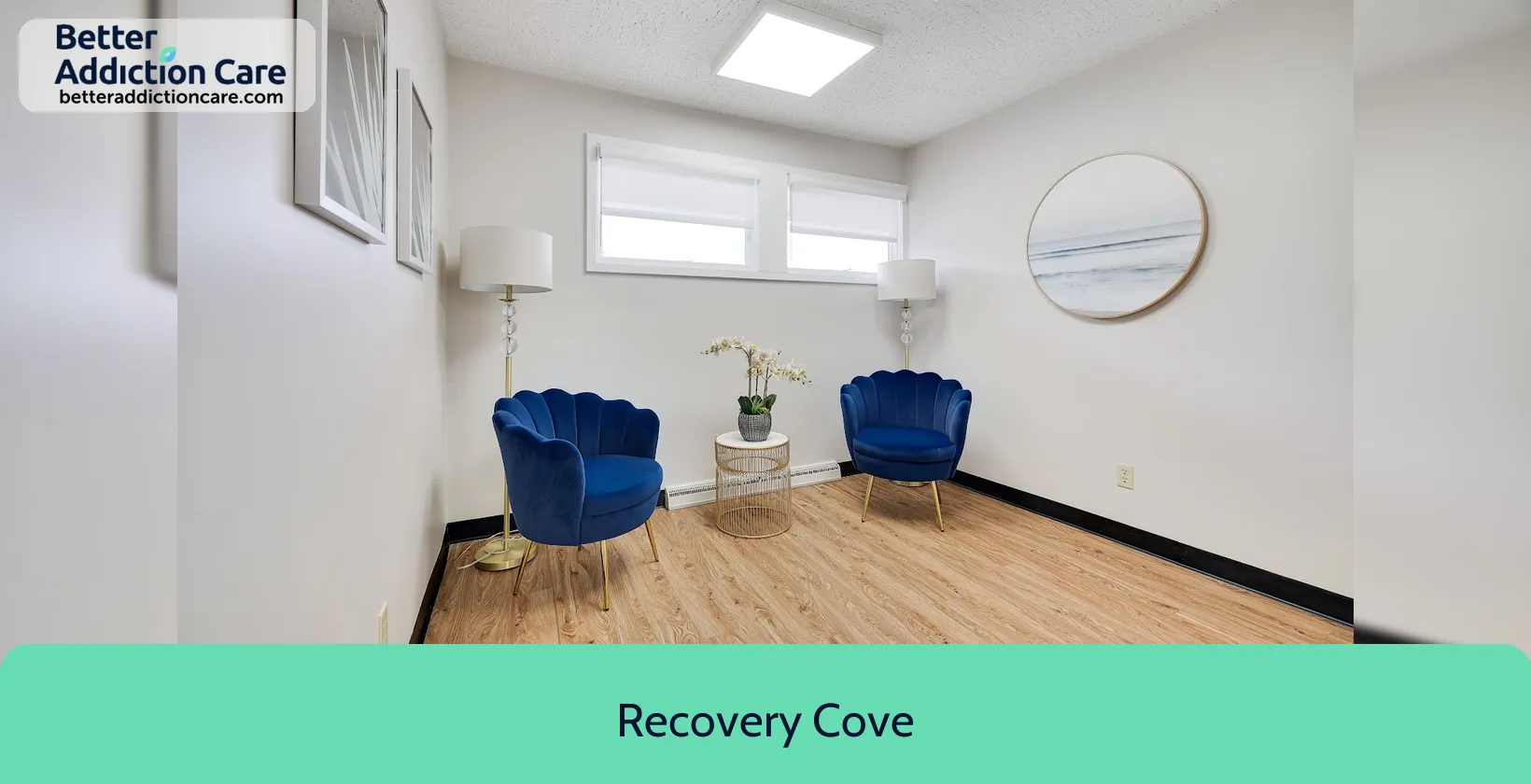Recovery Cove
Overview
Recovery Cove is an accredited substance abuse treatment center that provides outpatient treatment for men and women between 18 and 65+ years of age. As part of their special programs, Recovery Cove treats clients with co-occurring mental and substance use disorders, veterans, and active duty military. To help patients achieve sobriety, Recovery Cove provides intake assessments. Afterward, patients receive cognitive behavioral therapy, telemedicine/telehealth therapy, and substance use disorder counseling during treatment. Recovery Cove is located in Easton, Pennsylvania, providing treatment for people in Northampton County, accepting cash or self-payment, private health insurance, and federal military insurance (e.g., tricare).
Recovery Cove at a Glance
Payment Options
- Cash or self-payment
- Private health insurance
- Federal military insurance (e.g., TRICARE)
Assessments
- Screening for tobacco use
- Comprehensive mental health assessment
- Comprehensive substance use assessment
- Interim services for clients
- Outreach to persons in the community
Age Groups
- Seniors or older adults
- Young adults
- Adults
Ancillary Services
- Case management service
- Integrated primary care services
- Suicide prevention services
- Specially designed program for DUI/DWI clients
- Domestic violence services, including family or partner
Highlights About Recovery Cove
7.25/10
With an overall rating of 7.25/10, this facility has following balanced range of services. Alcohol Rehabilitation: 8.00/10, Drug Rehab and Detox: 6.92/10, Insurance and Payments: 6.00/10, Treatment Options: 8.06/10.-
Treatment Options 8.06
-
Alcohol Rehabilitation 8.00
-
Drug Rehab and Detox 6.92
-
Insurance and Payments 6.00
Accreditations
The Joint Commission:

The Joint Commission accreditation signifies that a facility has met rigorous standards of excellence in patient care, treatment, and safety. It assures individuals and healthcare professionals that the accredited facility provides high-quality, evidence-based care for addiction and mental health issues, fostering trust and confidence in their services.
Treatment At Recovery Cove
Treatment Conditions
- Alcoholism
- Mental health treatment
- Substance use treatment
- Co-occurring Disorders
Care Levels
- Outpatient
- Outpatient methadone/buprenorphine or naltrexone treatment
- Outpatient day treatment or partial hospitalization
- Intensive outpatient treatment
- Regular outpatient treatment
Treatment Modalities
- Cognitive behavioral therapy
- Telemedicine/telehealth therapy
- Substance use disorder counseling
- Trauma-related counseling
- Smoking/vaping/tobacco cessation counseling
Ancillary Services
Additional Services
- Pharmacotherapies administered during treatment
- Mentoring/peer support
- Breathalyzer or blood alcohol testing
Special Programs
- Clients with co-occurring mental and substance use disorders
- Veterans
- Active duty military
- Members of military families
- Criminal justice (other than DUI/DWI)/Forensic clients
Get Help Now
Common Questions About Recovery Cove
Contact Information
Other Facilities in Easton

6.62

6.59
DISCLAIMER: The facility name, logo and brand are the property and registered trademarks of Holcomb Behavioral Health Systems, and are being used for identification and informational purposes only. Use of these names, logos and brands shall not imply endorsement. BetterAddictionCare.com is not affiliated with or sponsored by Holcomb Behavioral Health Systems.
